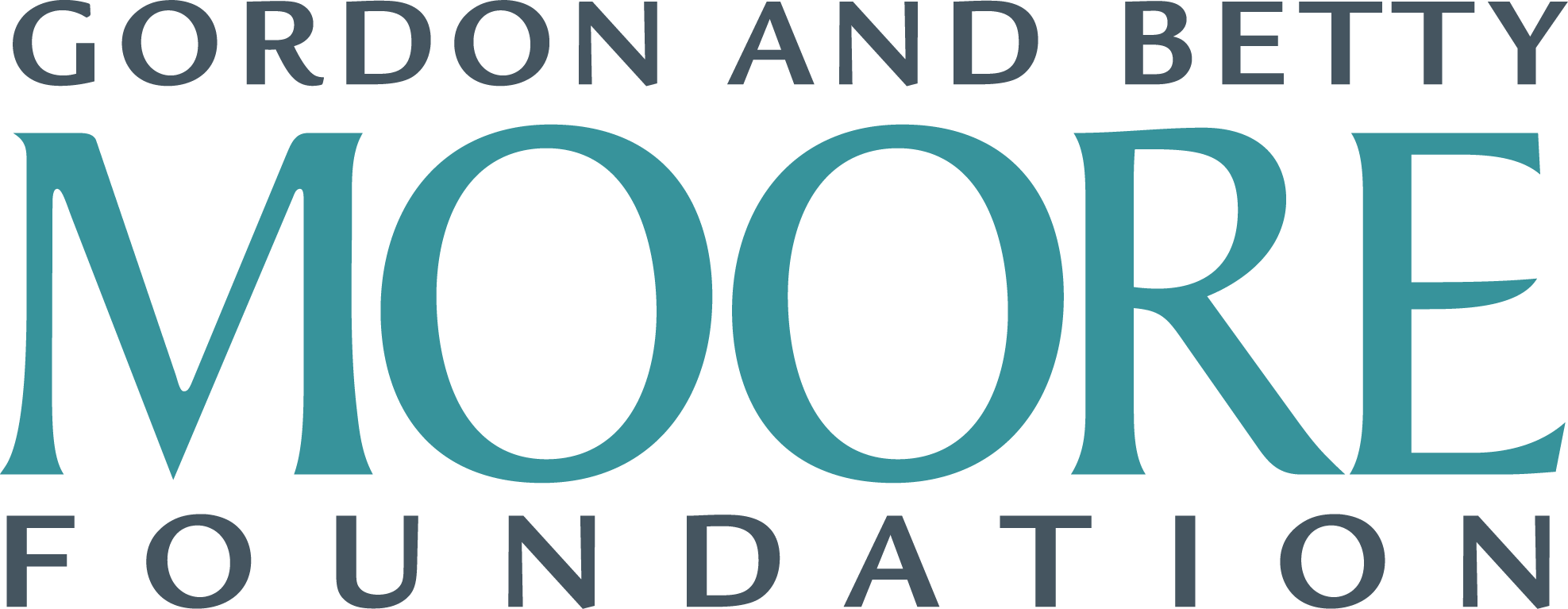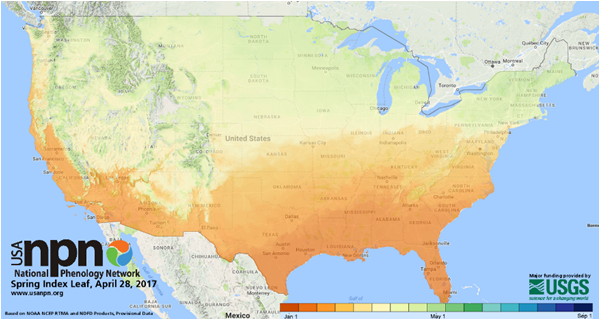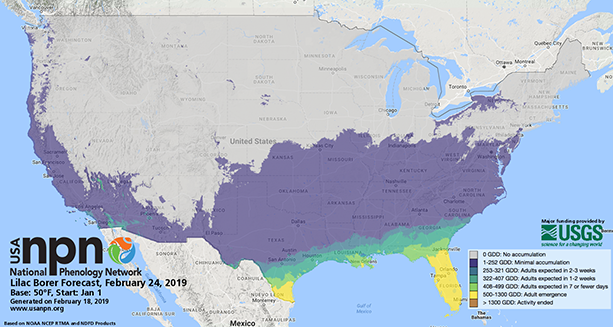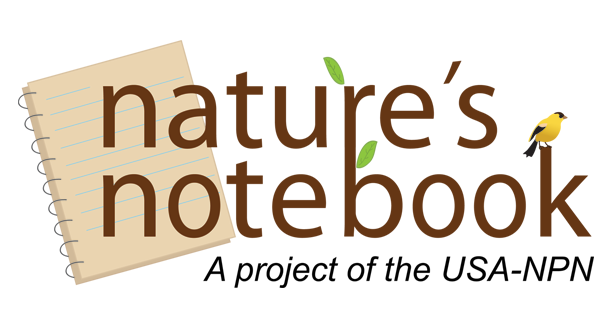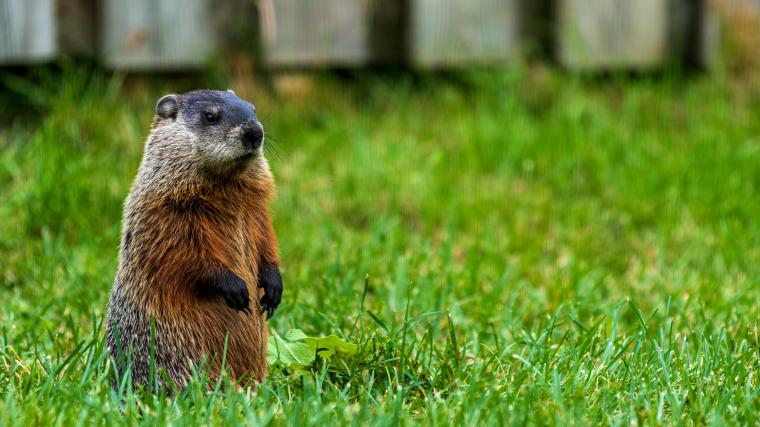
2026 Heat Accumulation vs Rodent Prognostication
On February 2, 2026, Punxsutawney Phil made his annual prediction of what the next six weeks of weather will bring. According to Phil, more winter is on the way! But what does the science say? Read more
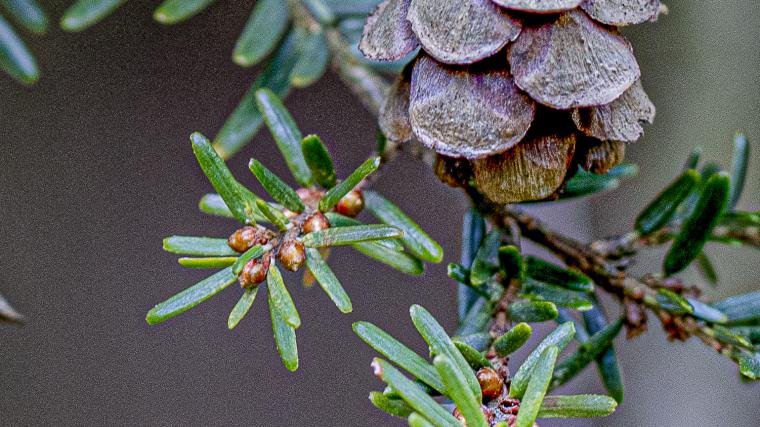
Spruce budworm affects more than just spruce trees
Insect pests, like emerald ash borers and spongy moths, pose a significant threat to forests in North America. Management of these pests depends on information about which trees are at greatest risk and which treatments are likely to be most effective. Outbreaks of spruce budworm can de... Read more
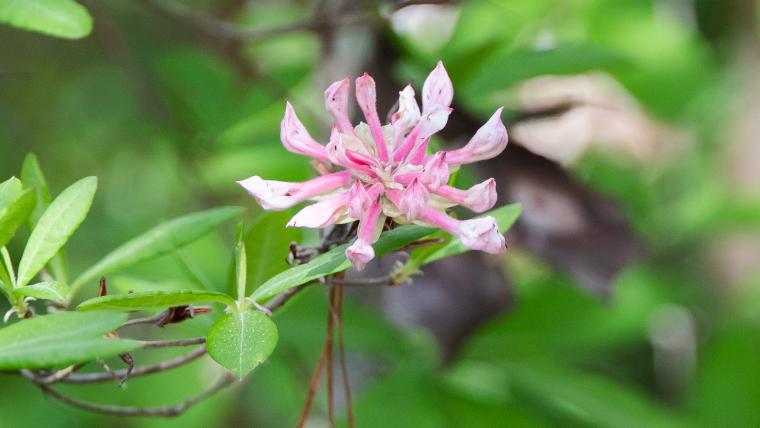
Nature’s Notebook data reveal earlier spring activity under warmer conditions
Results from many small-scale studies have shown that warming temperatures are causing plants to leaf-out and flower earlier than they have in the past. However, it has been difficult to know whether these patterns hold true for a wide variety of plant species at a continental scale. To... Read more

